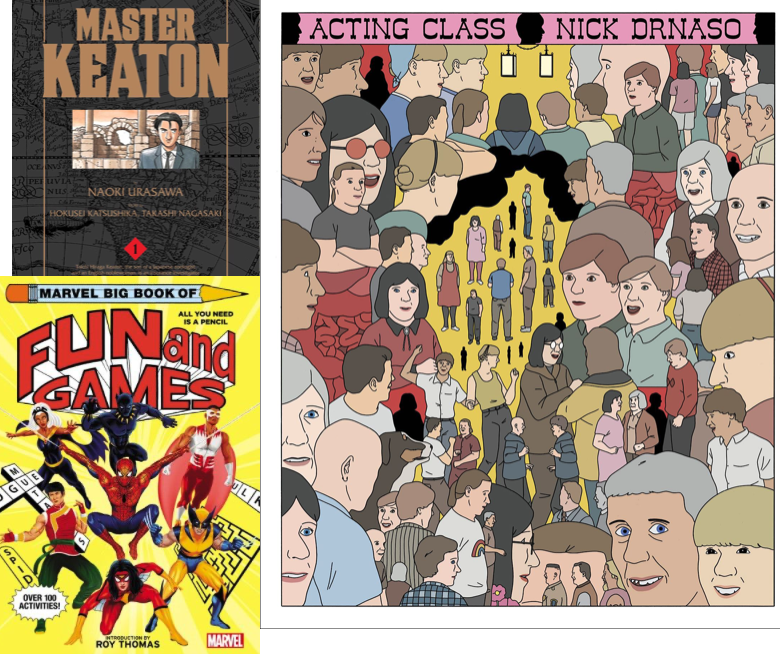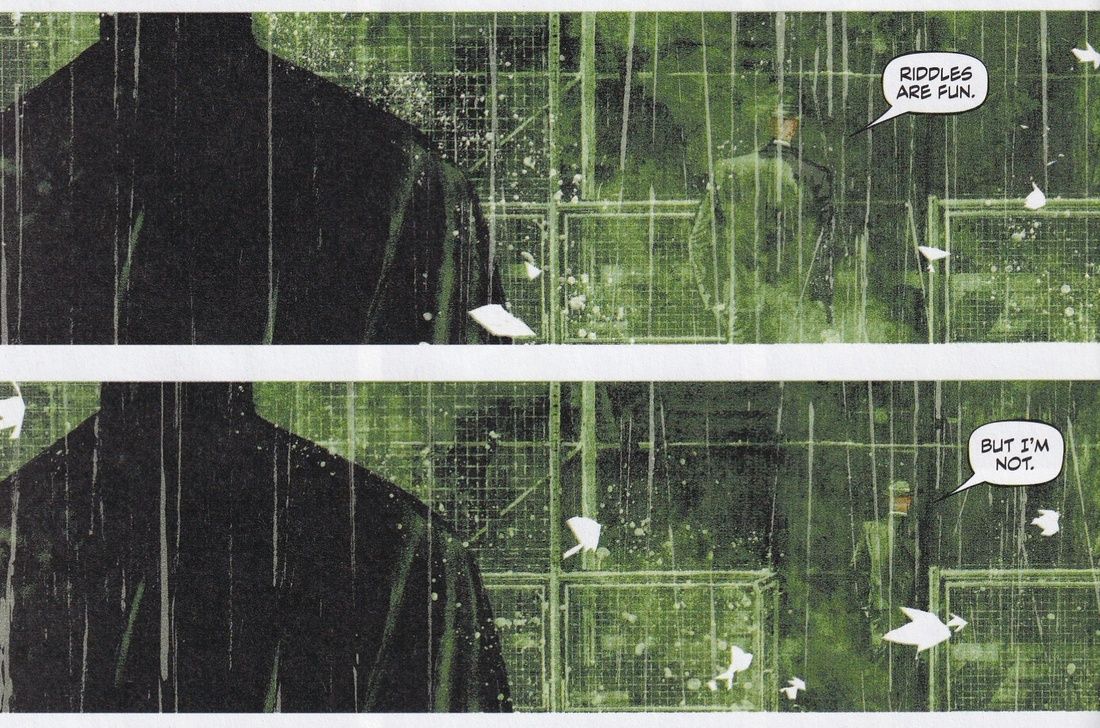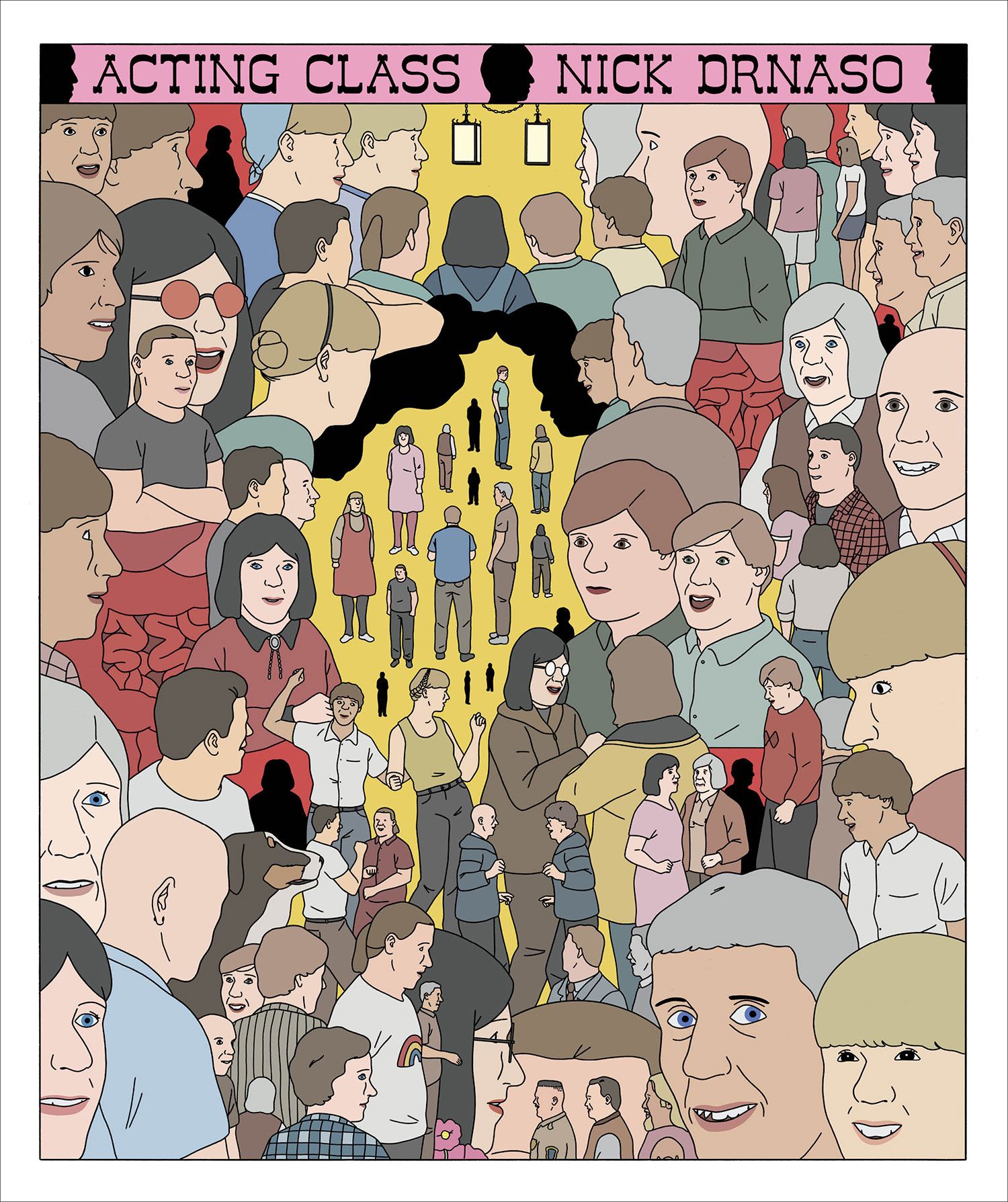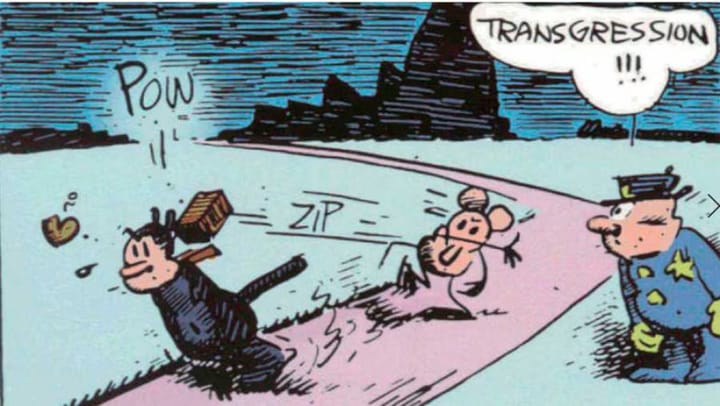5 Things To Read the Week- Aug 27th, 2022
Our weekly link post, covering writing about Marvel Fun and Games, Nick Drnaso's Acting Class, Naoki Urasawa's Master Keaton, Tom King's Batman and the 50th anniversary of Funky Winkerbean.

It's late August, school's all over are starting up again, and the summer is almost over. It's event season as the Big 2 and there is a new issue of Love and Rockets that I still need to read. So let's get to these links of things that caught our eye this past week.

At High-Low, Rob Clough went against his general policy of not reviewing Marvel Books to dive into this new collection from Abrams (one of our favorites around here,) Marvel Big Book of Fun and Games. I'm old enough to remember when these comics were coming out and honestly never thought I'd ever see a collection of them. So in the last couple of years, we've had collections of the 1970s Marvel stickeers and these puzzles and games. What a time to be alive.
Rob writes about about this book takes him back in time.
I bought my comics from a magical place called The Front Page, a small shop jammed to the gills with magazines, newspapers of all kinds, tobacco, and even the obscure Marvel magazines like Marvel Preview and Epic Illustrated. That place was heaven, the guys who ran it let me hang out as long as I wanted, and a trove of comics was available for just a few bucks.

Now I'm hoping someday for a collection of Pizzazz or even Blip!

Writing at Atomic Junk Shop, Greg Burgas has issues with how Tom King writes Batman. DC's latest attempt to create a new Killing Joke just reminds him of those issues. This Riddler one shot is on my reading pile somewhere because the comic shop had it up as their book of the week and I'm about 50/50 on what King I like and what King I just want to forget.
The little things, though, is where the book really bothers me. It’s the question of who the character is, who he could be, and what you can do with him. I claim, above, that King ruined the character, something the clerk at my store scoffed at because he says this is not in continuity (which may or may not be true). Sure, this might not be “canon,” but King is in the same position, I would argue, of Miller and Moore in the mid-1980s – influential enough that even if DC ignores this rendition, other people will read this and decide to use King’s take on the character, and then we’d get more of this garbage. I mean, The Killing Joke wasn’t supposed to be in continuity, yet here we are. So, speaking of that, the Riddler was the mastermind behind the events of The Killing Joke? Here’s what he tells Gordon: “How’d the Joker know you’d be home with Babs that day? How’d he know where you live? How did he get past your security? We both know him. He’s a weird guy, complicated, but never much of a planner.” So not only does King not understand the Riddler, he doesn’t understand the Joker, either, which isn’t surprising, given that most writers since Frank Miller turned the Joker into a rampaging maniac have misunderstood him.
For Shelfdust, Masha Zhdanova looks at the first volume of Naoki Urasawa's Master Keaton, an early-ish Urasawa serial that ran from 1988 to 1994. I've made it through a few of these volumes; the serialization nature of these books is different than that of Monster, 20th Century Boys, or Pluto in that I never felt the need to dive immediately into the next volume. But Zhdanova found its serializtion to be a benefit and not a bug of the series.
This manga is one that benefits greatly from chapter-by-chapter serialization, as each chapter is densely packed with events and information, often taking place in a completely different country from the chapter before it. Each mystery Keaton tackles takes no more than three chapters to solve, and no big overall story arc unfolds besides Keaton and his family members continuing to live their lives. It’s a comic that feels almost cinematic at times in its visual storytelling, with wordless sequences conveying significant parts of the narrative.


The comic strip Funky Winkerbean is 50 years old? Michael Cavna talks to the cartoonist Tom Batuik about how the strip has changed over the past five decades.
The reunion arc spotlights aging characters who have weathered so much in “Funky’s” half-century, from enduring love to profound loss — a golden milestone not often achieved by a single syndicated creator. And no modern mainstream comic strip this side of “Doonesbury” has so often dealt with the challenges of mental and physical health, and so sensitively handled the death of a beloved cast member.

At the Chicago Mag, Kathleen Rooney talks to Chicago-based cartoonist Nick Drnaso about his new book Acting Class.
I think this is maybe like a, not a midlife crisis kind of book, but I think there was a sense when I was younger that art and making art was all I needed and that was going to be the main purpose of getting up in the morning and not succumbing to depression or just to inaction. Now, it feels like that might be changing a little bit. My wife and I don’t have kids. I have a circle of friends, but there are vague themes of religion in the book or just finding your tribe. I think it’s a little weird not to have that, to just feel very disconnected from a community.





Comments ()